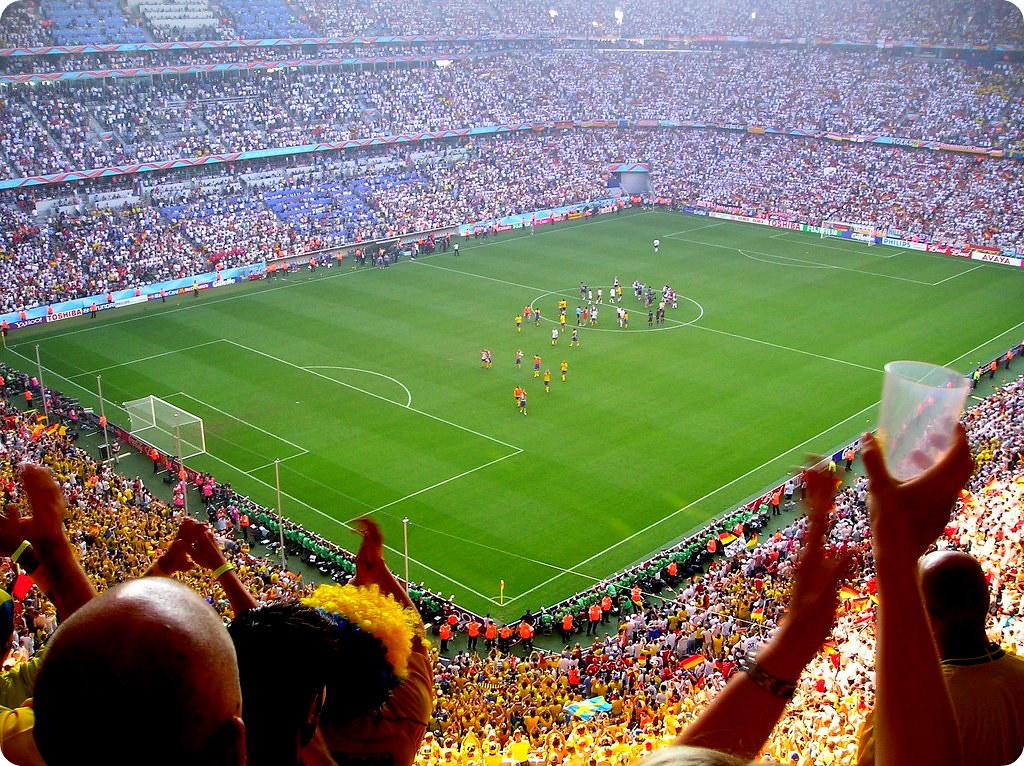As the year nears its end, people have come together to watch the most popular global sporting contest. The 2022 Fifa World Cup kicked off mid-November in Qatar, the first Middle Eastern country to ever host this massive event. However, in the weeks leading up to the games, instead of reporting excitement surrounding the event, Fifa and Qatar have received overwhelming and unprecedented backlash from Western media. Rather than football scores and national competition, human rights issues surrounding migrant workers have taken center stage at this year’s World Cup. Nevertheless, while these concerns have directed our attention to very important issues within the Fifa World Cup and migrant worker vulnerabilities, these conversations have also emphasized the West’s hypocrisy regarding social issues.
Issues with the 2022 World Cup have long preceded the beginning of the actual games. Since being chosen to host this event in 2010, Qatar’s been criticized for many social and ethical issues. A significant source of scrutiny for the nation has been the exploitation and mistreatment of migrant workers in preparing for the event. Western media outlets have reported that, of the 30,000 workers hired by Qatar since being chosen for the World Cup, an estimated 6,500 have died. However, this number does not solely account for the deaths of the people working on projects related to the World Cup, and therefore should be taken with a grain of salt. While the true number of deaths is not confirmed, these criticisms brought attention to the significant human rights violations that Qatar imposed on its migrant workers. Many workers have spoken out about unsafe conditions they face and unfair wages. Qatar’s sponsorship – or kafala system – added to these exploitations as migrant workers were often excluded from the country’s labour laws. Little concern for the safety and rights of these workers combined with the dangerously hot conditions and extraneous tasks required to prepare for the World Cup has led to the extreme exploitation and abuse of these workers. This eventually caused the United Nations to call on Qatar to take actions in improving migrant workers’ rights.
A significant source of scrutiny for the nation has been the exploitation and mistreatment of migrant workers in preparing for the event.
These issues have received much publicity in the weeks leading up to the World Cup, sparking protest campaigns and pushing many to boycott the event. Human rights groups have also actively pushed for these migrant workers and their families to receive compensation for the mistreatment, injuries, and deaths that occurred. Many have also boycotted this event because of Qatar’s anti-LGBTQ stances and laws which have excluded fans and players from wearing pride flags while attending the World Cup.
While recognizing the issues regarding Qatar’s treatment of migrant workers and other problematic human rights issues, Western countries and media often make hypocritical claims and take performative stances in support of these human rights violations and against Qatar. The attention these social issues are receiving during the 2022 World Cup is often misinterpreted or blatantly assumed to solely exist in Qatar or the Middle East. Many people even believe that these issues have only recently emerged. Article titles labeled “Qatar World Cup of Shame” or “Qatar: Rights Abuses Stain Fifa World Cup” simplify the deeper systemic issues faced by migrant workers and pin the blame solely on Qatar. However, Fifa has had a long history of host nations exploiting workers. The 2014 World Cup held in Brazil reported workers facing “slave-like conditions.” Russia, which held the 2018 World Cup, also had reports of exploiting and abusing workers in preparation for the games and had been engaged in an ongoing conflict with Ukraine. Yet, despite these human rights issues and social concerns neither country’s violations received as much attention and criticism as Qatar’s.
The attention these social issues are receiving during the 2022 World Cup is often misinterpreted or blatantly assumed to solely exist in Qatar or the Middle East.
Even more problematic is the current hypocrisy facing countries such as England and Germany who have been outspoken against Qatar’s human rights issues yet signed Gas deals with the state earlier this year to put an end to their dependency on Russian energy. This double standard of engaging in trade deals with Qatar while simultaneously admonishing their human rights issues is hypocritical. The president of Fifa, Gianni Ifantino, called out Western companies who do business with Qatar without advocating for migrant worker rights because it would threaten their profits. Not to mention how Qatar’s most active critics, British media, fail to mention how England’s team jerseys for the World Cup are produced by Bangladesh garment workers who get paid under a pound per hour. However, these human rights issues and many others actively supported by large western nations seeking profit are rarely addressed. These Western perspectives intentionally overlook previous issues within World Cup host nations and current problems within their own states in an effort to keep “politics out of football” but selectively choose to highlight the issues within Qatar.
This double standard of engaging in trade deals with Qatar while simultaneously admonishing their human rights issues is hypocritical.
Rather than actively trying to solve the issues at stake, this selective and hypocritical approach to human rights issues acts primarily as a justification for Western voices to perpetuate racist propaganda. There is a purposeful ignorance of previous and current human rights violations occurring in both Fifa and Western nations in order to accuse the Middle East of being uncivilized. Responding to these ideas by boycotting Qatar is not only performative, but it also fails to address the deeper systemic issues thereby not helping solve the problem. However, the solution is also not to continue keeping politics out of football. Recognizing these human rights issues is vital to solving them. Nevertheless, the hypocrisy must end. We have to recognize that human rights issues are not individual to a specific nation—they occur in Qatar, in the United States, in Russia, and many other nations. Conversations surrounding these problems cannot begin and end with Qatar, they must continue in every nation. We should work to address the corruption and problems that are embedded within FIFA. To succeed in providing solutions to the vulnerabilities migrant workers face we must put aside Western notions of superiority and continue to advocate for the rights of migrant workers beyond the Middle East.








